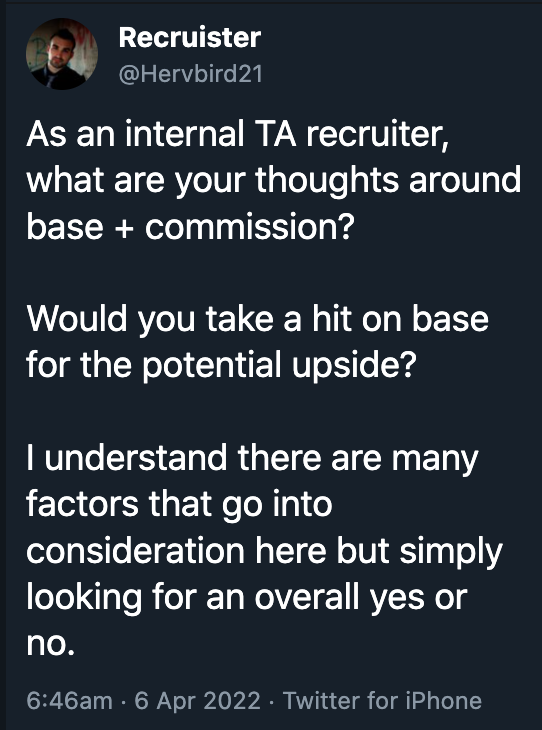When 4-5 million people per month change jobs, mostly for more money, there are going to be some consequences! Turns out, the grass isn’t always greener when you get more green!
A Muse survey, reported in the WSJ, recently found out that nearly 75% of workers who’ve changed jobs recently have regretted it, and 50% of those would try and get their old job back! That’s a lot! But it’s not surprising.
The biggest stressors we have in life are having kids, buying a house, and changing jobs. We tend to make bad decisions when stressed, and when you have 4-5 million people per month making that decision, well, that’s a lot of bad decisions!
What will we learn from the Big Regret?!
1. Money isn’t everything, but once you get more of it, it’s hard to go back to the old money level.
2. The old job and the old boss didn’t really suck, and the stuff we thought sucked at the old job, suck at the new job as well. It’s called “work” for a reason.
3. The power of someone paying attention to us and making us feel pretty is the most powerful force on the planet. Never underestimate it.
4. You can go back to your old job, but it will be different. It’s like going back to your ex. You are both a bit smarter and a bit more cautious now. There are some scars. Same people, same company, same job, but it’s not the same. Doesn’t make it bad, but you can’t expect it to be the same.
5. You can’t really judge a job until a couple of things happen: 1. You actually know how to do the job fully; 2. Co-workers stop seeing you as the newbie. In every case, that timeline is different. Be patient and do the job before you judge it.
6. If you find that you have an asshole boss at every job you work, the asshole might be you, not the boss.
7. In the future, when we have more jobs than available workers, let’s not act surprised when people start changing jobs. It’s happened in every similar economic cycle in the modern world. It’s called oppotunity. Don’t confuse that with the world has changed.
What should you do if you hate your new Great Resignation Job?
- Take some time to really determine what you hate. Was that different from the old job? Was it the same? Will it be that way at the next job? Too many folks don’t know what they hate and they just keep selecting the same jobs they hate time and time again, but with a new pay rate and new address.
- Some of us immediately want to return back to our old job. That might work, it might not. A psychological thing happens to so many managers once you leave them. It’s like you broke up with them and now you want to run back to that comfort. You’ll find many have no interest, and it has nothing to do with your value and performance, and everything to do with them feeling like you’ll hurt them again.
- Try and find something you like to do, but call it “work”. This is different than the B.S. you’re told about work doing something you love and you’ll never work another day in your life! I’m no life coach, but that crap doesn’t work. You call it “work” even if you love it, because one day you’ll show up to do what you thought you loved and find out its work, and you’ll be depressed and broken. You don’t love work. You love your family and your God and puppies. You work to put yourself in a position to be able to do what you love. If you’re super lucky, every once in a while those two things will overlap.


